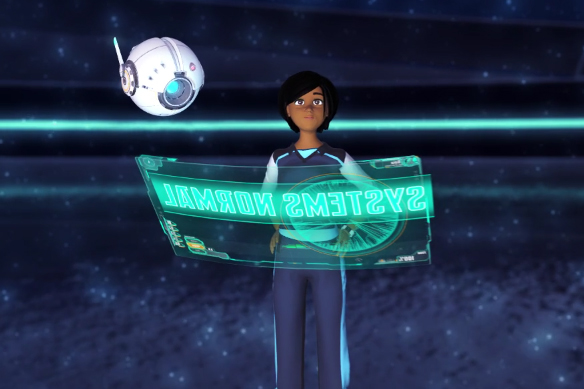What better way to enjoy a science lecture than with a cold beer in your hand?
Science on Tap, which takes place downtown at The Green Room one Thursday a month, provides a relaxed atmosphere where scientists from Northern Arizona University, local science organizations and universities throughout the country can share new findings with Flagstaff residents. Last week, Bruce Hungate, NAU Regents Professor and McAllister Chair in Community, Culture, and Environment, presented on “Climate and Culture on the Colorado Plateau.”
The series is coordinated by Kara Gibson and Maya Allen, graduate students in the Department of Biological Sciences, and covers topics that range from local wildlife concerns to recent discoveries in space.
“NAU is at the leading edge of research efforts in a number of fields that are of keen interest to the Flagstaff community. Science on Tap creates a fun opportunity to share our findings, insights and research successes,” said Jason Wilder, chair of the Department of Biological Sciences. “The series’ success is a direct reflection of the enthusiasm of our graduate students, who started it in 2013 and continue to organize it today.”
As part of the series, Rob Guralnick, a leading force in the field of biodiversity informatics, will present “Scaling Up and Reaching Out” at 6:30 p.m. on Feb. 1. The event is sponsored by NAU’s Merriam-Powell Center for Environmental Research.
Guralnick’s talk will focus on two projects designed to engage the public in natural history and biodiversity. The first project is a long-term citizen science project called “Notes from Nature.” The project harnesses the energy of enthusiastic people, or citizen scientists, to help transcribe labels that contain all the information about an item, say a crab, in a natural history museum collection. The transcriptions are part of a larger effort to digitize museum collections so the invaluable information they contain is easily available for research, education and policy.
The second project is a novel approach to reach the general public about the importance of the “tree of life”—a phrase used to describe all life on Earth and the interrelationships among living things. The presentation will include a showing of “TreeTender,” a 15-minute animated film that examines how all living things are connected and presents ways to prevent biodiversity loss.
“The film was a collaborative effort that brought together the diverse talents of people working in the arts, communication and the sciences to create a piece that explains complex scientific topics in an engaging way,” said Guralnick, associate curator at the University of Florida and one of the film’s science advisers. “We are all so proud of the work, and I cannot wait to show it at NAU!”
Guralnick, who is the newest member of the executive board of the Merriam-Powell Center, is well-known for his work at the intersection between data sciences and global change biology. Guralnick works with national and international monitoring programs to develop better means for understanding changes in biodiversity using a combination of data science tools and new modeling frameworks.
NAU’s Merriam-Powell Center for Environmental Research promotes cross-disciplinary research and education to understand critical environmental processes and the implications of change resulting from human activities. Through its efforts, the center is helping to create the scientific knowledge and understanding needed to address significant environmental challenges, including climate change and biodiversity loss—issues Guralnick will address in his presentation.
More information on the series can be found on the Flagstaff Science on Tap Facebook page or by contacting Kara.Gibson@nau.edu.These events are free and open to anyone ages 21 and older.



